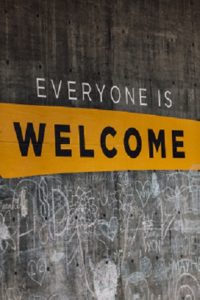 In most cases, so long as a Canadian Citizen has a valid passport and is traveling to the United States for pleasure, then he or she may visit for a period of up to 180 days without a visa. However, this general rule does not apply at all times. One particular exception that I’d like to discuss in this blog is when a Canadian Citizens has a criminal record. In that case, the he or she will need to go through the process of obtaining advanced permission to enter the United States prior to traveling.
In most cases, so long as a Canadian Citizen has a valid passport and is traveling to the United States for pleasure, then he or she may visit for a period of up to 180 days without a visa. However, this general rule does not apply at all times. One particular exception that I’d like to discuss in this blog is when a Canadian Citizens has a criminal record. In that case, the he or she will need to go through the process of obtaining advanced permission to enter the United States prior to traveling.
The primary form needed to obtain advanced permission is “Form I-192”. Form I-192 asks for a series of biographical information about you, your parents, and your spouse. In addition to a completed Form I-192, you will also need to provide a five-year residential history, five-year employment history, and a description of every incident in which you were arrested/cited/charged/indicted/fined/convicted/imprisoned for breaking or violating any law or ordinance anywhere in the world, with the exception of minor traffic violations. You will also be required to obtain copies of court records regarding the disposition of your alleged crimes. Finally, you will be required to provide a sworn statement explaining why you are inadmissible and give reasons why you should be admitted.
The last two items: providing a sworn statement and gathering court records can be difficult to perform without assistance of a lawyer. This is when having a local lawyer licensed to practice in the United States and in Canada can be beneficial.
As a lawyer licensed to practice in British Columbia, I can assist you with making a statutory declaration that complies with the requirement that you provide a sworn written statement explaining your inadmissibility and why you should be admitted. I can also assist you with gathering the court documents related to alleged crimes in Canada. Furthermore, as a lawyer licensed to practice in the United States (Arizona and Washington State) I can give you legal advice regarding the contents of Form I-192, help you draft your sworn statement, and submit the application package on your behalf to the U.S. Citizenship and Immigration Services.
If you need assistance with the Application for Advance Permission to Enter as Nonimmigrant to the United States in the lower mainland, then please do not hesitate to contact Jayme Yamaguchi at jayme@dbmlaw.tempbuild.net.
Sources:
U.S. Customs and Border Protection, Form I-192: Application for Advance Permission to Enter as Nonimmigrant, last visited May 11, 2020.
U.S. Citizenship and Immigration Services, I-192, Application for Advance Permission to Enter as a Nonimmigrant , last visited May 11, 2020.
U.S. Embassy & Consulates in Canada, Canadians Requiring Visas, last visited May 11, 2020.


